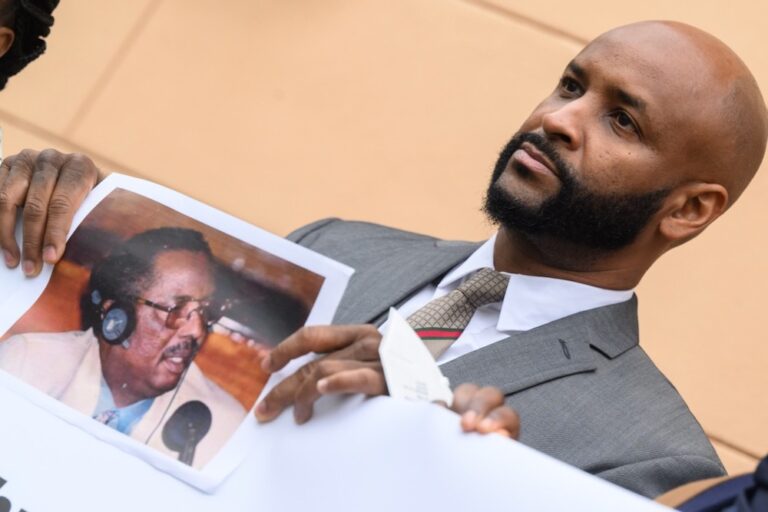The government of The Gambia has given an indication of its readiness to fully implement the recently-passed draconian legislation intended to restrict online freedom.
The government of The Gambia has indicated its readiness to fully implement the recently-passed draconian legislation
intended to restrict online freedom.
Momodou Sabally, head of Civil Service and Minister of Presidential Affairs, served notice of the government’s intentions to crackdown on online freedom at a meeting held on August 8, 2013, with religious leaders and cabinet members at the official seat of government, the State House.
The minister warned Gambians – particularly the youth – against participating in online campaigns against the government. “If you cannot say anything good about the country, then you should keep quiet,” he exclaimed.
The comments by Sabally come at a time when various free expression organisations, including the MFWA, have condemned the recently-passed law, which prescribes stiffer punishment for persons found guilty of publishing “false news” online.
The law imposes a jail term of 15 years and/or a fine of three million dalasis (about US $90,000) on persons who criticize government officials, caricature or instigate violence against the government through the Internet.
What is more worrying is that the religious leaders at the aforementioned meeting reportedly indicated their support for the government’s plans to repress online freedom.
Alieu Mboge, a spokesperson for the group is reported to have assured the cabinet that “we would do everything within our power to stop the youth both in[side] and outside the country from any online criticism of the government.”
In a country where human rights advocacy by religious leaders is not tolerated, it is feared that the government may use the latest
pronouncements by religious leaders to legitimize its new policy of massively repressing Internet freedom.
We call on religious leaders to recognize the importance of the Internet, which remains the only platform for freedom of expression and participation in public discourse among Gambians, as traditional media outlets are already cowed from airing programmes which are critical of the government.
Recognising that online activism has ensured justice and given hope to many citizens – including the recently-freed Imam Baba Leigh – we urge religious leaders to lead and support ongoing advocacy processes to improve the ever-deteriorating freedom of expression conditions in The Gambia.


